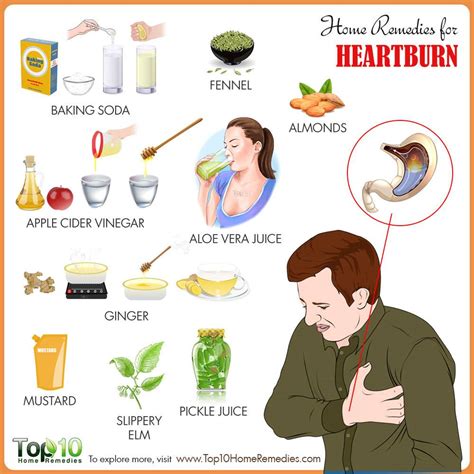How to Get Rid of Heartburn: Fast Relief and Long-Term Solutions
Heartburn, that burning sensation in your chest, is a common problem affecting millions. While occasional heartburn isn't usually cause for alarm, frequent episodes can signal a more serious underlying condition. This comprehensive guide will explore effective ways to get rid of heartburn, both for immediate relief and long-term prevention.
Understanding Heartburn: The Root of the Problem
Heartburn, medically known as gastroesophageal reflux disease (GERD) when chronic, occurs when stomach acid flows back up into the esophagus. This backflow irritates the lining of the esophagus, causing that characteristic burning feeling. Several factors can contribute to heartburn, including:
- Diet: Spicy foods, acidic foods (citrus fruits, tomatoes), chocolate, caffeine, and alcohol are common culprits.
- Lifestyle: Overeating, eating too close to bedtime, smoking, and wearing tight clothing can all exacerbate heartburn.
- Medications: Certain medications, such as NSAIDs and some blood pressure medications, can increase the risk of heartburn.
- Underlying Conditions: Hiatal hernia, obesity, and pregnancy can also contribute to heartburn.
Fast Relief for Heartburn: Home Remedies and Over-the-Counter Options
When heartburn strikes, you need quick relief. Here are some effective methods:
Home Remedies:
- Antacids: Over-the-counter antacids neutralize stomach acid, providing almost immediate relief. Important Note: While effective for short-term relief, overuse can mask underlying problems.
- Baking Soda: A teaspoon of baking soda dissolved in water can temporarily neutralize stomach acid. However, it's high in sodium, so it shouldn't be used regularly.
- Chewing Gum: Chewing sugar-free gum stimulates saliva production, which can help neutralize acid.
- Elevate Your Head: Sleeping with your head elevated on an extra pillow can help prevent stomach acid from refluxing.
Over-the-Counter Medications:
- H2 Blockers: These medications reduce stomach acid production. Brands like famotidine (Pepcid) and cimetidine (Tagamet) are readily available.
- Proton Pump Inhibitors (PPIs): These are stronger than H2 blockers and more effective for severe heartburn. Omeprazole (Prilosec) and lansoprazole (Prevacid) are examples. Important Note: Long-term use of PPIs should be discussed with a doctor.
Long-Term Solutions for Preventing Heartburn
While quick fixes provide temporary relief, addressing the underlying causes is crucial for long-term heartburn prevention.
Dietary Changes:
- Identify Trigger Foods: Keep a food diary to identify foods and drinks that trigger your heartburn. Eliminate or limit these from your diet.
- Smaller, More Frequent Meals: Eating smaller, more frequent meals can reduce the amount of acid in your stomach.
- Avoid Eating Before Bed: Give your stomach time to digest before lying down. Aim for at least 2-3 hours between eating and sleeping.
- Lose Weight (if applicable): Excess weight can increase abdominal pressure, worsening heartburn.
- Stay Hydrated: Drinking plenty of water can aid digestion.
Lifestyle Modifications:
- Quit Smoking: Smoking weakens the lower esophageal sphincter, increasing the risk of reflux.
- Wear Loose Clothing: Tight clothing can put pressure on your stomach, increasing heartburn.
- Manage Stress: Stress can worsen heartburn. Practice stress-reducing techniques like yoga, meditation, or deep breathing.
When to See a Doctor
While occasional heartburn is manageable with home remedies and lifestyle changes, persistent or severe heartburn requires medical attention. Consult a doctor if you experience:
- Frequent heartburn (more than twice a week)
- Heartburn that interferes with your daily activities
- Difficulty swallowing
- Unexplained weight loss
- Vomiting blood or coffee-ground-like material
- Bloody or black stools
This information is for general knowledge and does not constitute medical advice. Always consult a healthcare professional for diagnosis and treatment of any medical condition.
